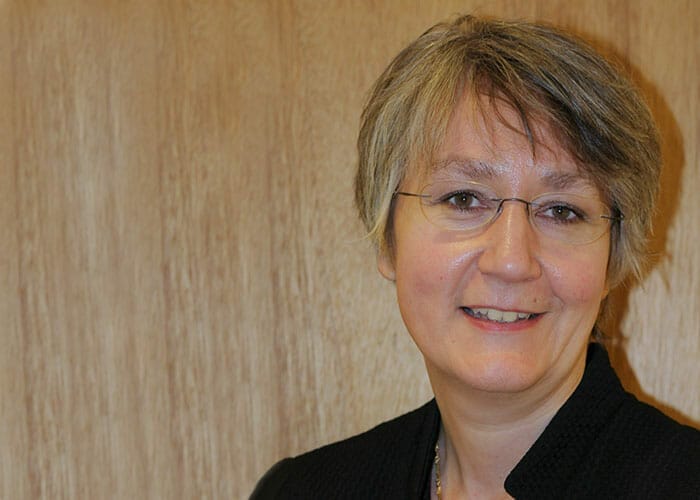In December 2018, dozens of Dutch pension funds and other stakeholders pledged to prevent or tackle any negative consequences to society or the environment from pension fund investment.
In the landmark initiative, more than 70 funds, with combined assets under management of €1.2 trillion ($1.4 trillion), together with the Federation of the Dutch Pension Funds, six non-government organisations, trade unions and the Dutch Government, signed the Responsible Business Conduct Agreement (IRBC).
Pension funds invest in thousands of companies worldwide. In doing so, they can be confronted with all sorts of misconduct or abuse that could take place in companies or in the supply chains of these companies. The Organisation for Economic Co-operation and Development Guidelines for Multinational Enterprises and the UN Guiding Principles on business and human rights give guidance to enterprises and investors on how to prevent and mitigate such abuse or misconduct. Under the IRBC, all pension funds, regardless of their size or capacity, are given encouragement and support to carry out and report their due diligence in implementing the OECD guidelines.
An important aspect of the guidelines is holding multinational enterprises responsible for knowing their supply chain. By investing in enterprises, institutional investors can be directly linked to abuses that occur within a supply chain. Being directly linked to abuses doesn’t mean the investor caused or contributed to an abuse, but that the investor is connected to it via its position as minority shareholder.
As is stated in the OECD Guidance for Responsible Business Conduct for Institutional Investors, pension funds are expected to perform a risk analysis and impact assessment on their investments. It is due diligence specifically targeting risks and impact for society and the environment, rather than just financial risk, and the IRBC now lays out how this process should take place.
All pension funds will incorporate the OECD guidelines and the UN Guiding Principles on business and human rights into their responsible investment policy. This puts the onus on their asset managers or fiduciary managers to execute the investments in line with the policy of the pension fund, which will ask them to perform due diligence and to report on their findings and the actions they have taken.
Transparency is an important aspect of the IRBC. Pension funds have agreed to detail in their annual report how their investment policy takes the environment and climate, human rights and social relationships into account. Investors have also agreed to publish their Statement of Investment Principles on their website. They will also publish the names of the companies and investment funds in which they were invested over the previous period.
Progress so far
Partnerships between business, government, unions and non-government organisations have already led to IRBC agreements for specific sectors. It started with the Dutch Agreement on Sustainable Garments and Textile and there are now nine IRBC agreements in the financial sector, covering banks, insurance and pension funds.
In the first year of the IRBC, pension funds, government, unions and NGOs will work together on developing a toolbox that participating pension funds can use to implement the OECD Guidelines and the UN Guiding Principles into their policy, contracts with external service providers, monitoring and reporting.
Dutch pension funds vary greatly in size and investment preferences and all participating pension funds must be able to apply the toolbox in a meaningful and practical manner. To facilitate this, various tools and applications will be developed that are appropriate for the specific size, investment strategy and leverage of different pension funds and asset classes. The various parties will contribute their expertise to the development of the toolbox.
In the second and following years, pension funds will adapt their policy, monitoring and reporting to the agreement.
The second unique feature of the agreement is the co-operation of pension funds, government, unions and NGOs on selected cases. This co-operation will address human and labour rights issues that pension funds encounter in their investment practices and cannot resolve themselves. The objective will be to encourage learning and innovation that will help increase the leverage that pension funds have in their engagement with listed investee companies, with a view to preventing, mitigating and remediating any adverse impacts.
This co-operation will produce broadly relevant insights that will be reproducible and will become part of the toolbox for all pension funds.
Support for the IRBC represents nearly 90 per cent of all AUM in the Dutch pension sector. The six NGOs are: Amnesty International Netherlands; Oxfam Novib; PAX; Natuur & Milieu [Nature & The Environment]; Save the Children Netherlands; and World Animal Protection. The three supporting trade unions are: the Dutch Federation of Trade Unions; National Federation of Christian Trade Unions in the Netherlands; and Trade Union Federation for Professionals. The four ministries are: Finance; Foreign Trade and Development Co-operation; Social Affairs; and Employment.
Melanie Meniar is a policy adviser at the Pensioenfederatie (Federation of the Dutch Pension Funds).


